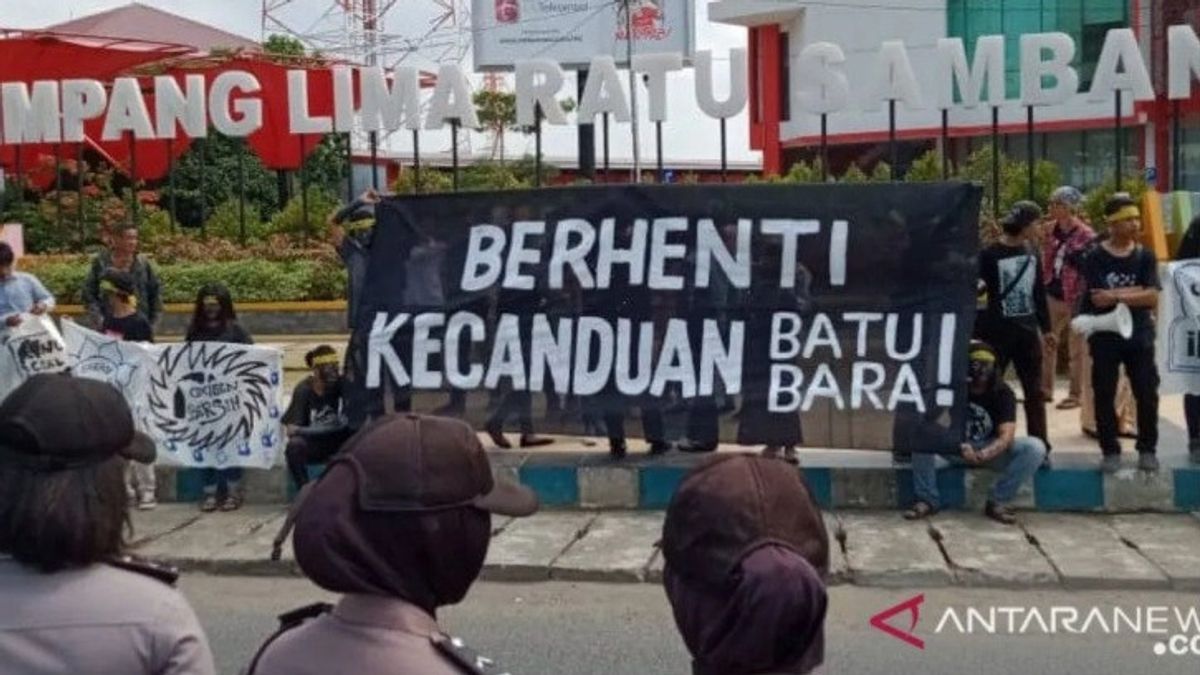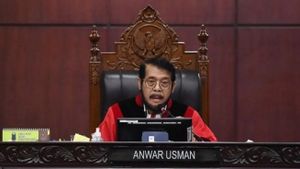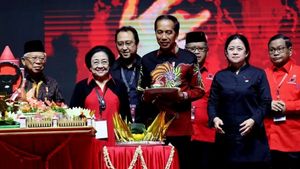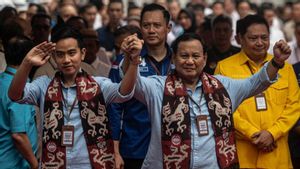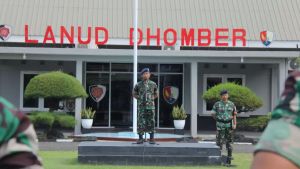JAKARTA In the midst of a political frenzy ahead of the 2024 Presidential Election, issues related to the climate crisis and the environment seem deserted from discussion. In fact, these are issues that intersect directly with the community.
Three presidential and vice presidential candidates have registered with the General Election Commission (KPU) until last Wednesday, October 25, 2023. They are Anies Baswedan-Muhaimin Iskandar, Ganjar Pranowo-Mahfud MD, and Prabowo Subianto-Gibran Rakabuming Raka.
The three couples have sold or leaked several programs that will be implemented if elected to occupy RI1 next year. There are similarities between the three, namely not making environmental issues a priority for ideas, so that it gives rise to the impression that environmental and climate problems are still being raised.
The 2024 election is a crucial political agenda. On February 14, 2024, all Indonesians who have the right to vote will directly elect the president for the fifth time.
This is a moment for the presidential candidates to show their commitment to address a series of environmental issues.
Quoting Antara, the National Disaster Management Agency (BNPB) noted that 95 percent of disasters that occurred in 2022 were hydrometeorological disasters, namely floods and landslides. Disasters in the hydrometeorological group are the most, with a tendency to increase triggered by climate change.
However, in the midst of the increasing urgency of environmental problems, these three pairs of presidential candidates seem to ignore these problems.
This was revealed by Uli Artha Siagian as Manager of the National WALHI Forest Campaign and Gardens. Uli highlighted the two most important environmental issues that should get special attention from prospective presidential candidates, namely the climate crisis and agrarian inequality.
"Climate crisis is not only a topic of discussion in Indonesia, but also globally. The cause is the release of emissions, the use of fossil fuels to change the forest landscape into oil palm plantations, for example," said Uli when contacted by VOI.
Meanwhile, the issue of agrarian inequality occurs because the state is very generous in giving permission to corporations. These two issues should be a major concern, but the fact is not," Uli added.
However, Uli is pessimistic that environmental problems will be included in the main program of the presidential candidates if elected later.
The issue of a structural problem environment requires a structural commitment and political will as well, Uli explained.
"The three presidential candidates seem reluctant to discuss structural issues, one of which is environmental issues," he said again.
SEE ALSO:
The same thing was also conveyed by the Campaign Spokesperson for the Auriga Nusantara Foundation, Hilman Afif. He believes that political actors are aware of the importance of agrarian issues and the environment.
Afif is skeptical that these presidential candidates understand in detail environmental issues and climate change. Therefore, he doubts they make the issue a priority to be resolved.
"Because to this day, we do not see any discourse or narrative built by political parties regarding the resolution of the mentioned issues. The public is always presented with a political maneuver phenomenon that is not substantive at all," Afif said.
As is known, generation Z and millennials are the highest electoral groups in the 2024 presidential election. Based on the results of the recapitulation of the permanent voter list (DPT) of the General Election Commission (KPU), the majority of the 2024 election voters are dominated by generation Z and millennials.
A total of 66,622,389 or 33.6 percent of voters came from the millennial generation. Meanwhile, 46,800,161 voters from generation Z or 22.85 percent of the total 2024 election DPT reached 204,807,222 voters. This means that the total voters from Generation Z and millennials reached 56.45 percent.
This group is a realistic group of voters. And the issue of climate and environmental crises is among their concerns.
This was revealed through an online survey conducted by the Center of Economic and Law Studies (Celios) and Unitrend to 1,245 respondents from 13 provinces from March 31 to April 15, 2023.
From the survey results, it was admitted that Z and millennial generation respondents with an age range of 15-34 years at most argued that the climate crisis was real and had been felt, while 5 percent of respondents aged 45-54 years answered that it was not real.
"There is potential for young people to oversee the process and energy transition policies carried out by the government, including JETP (Just Energy Transition Partnership) or Transmission Energy with Justice," said Rizki Ardinanta, a researcher at the Institute for Policy Development, at the launch of an online survey report, Jakarta, Tuesday (5/9/2023).
The English, Chinese, Japanese, Arabic, and French versions are automatically generated by the AI. So there may still be inaccuracies in translating, please always see Indonesian as our main language. (system supported by DigitalSiber.id)
